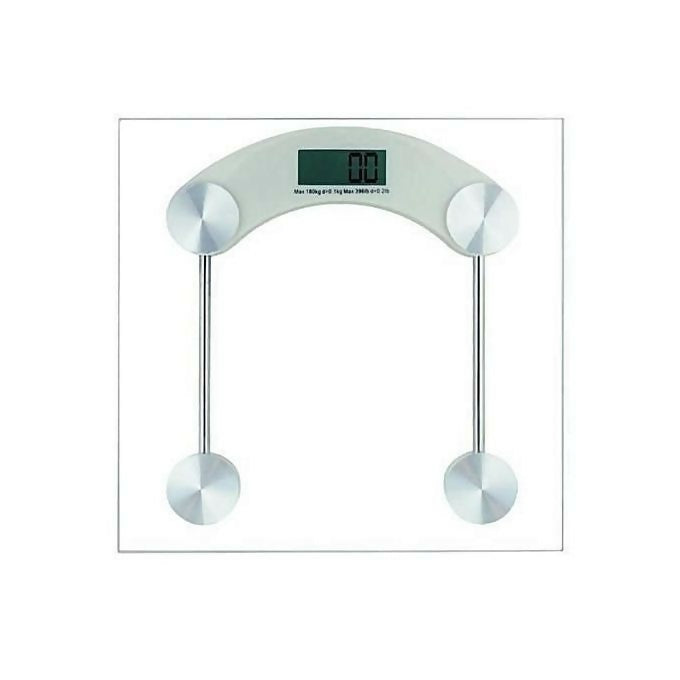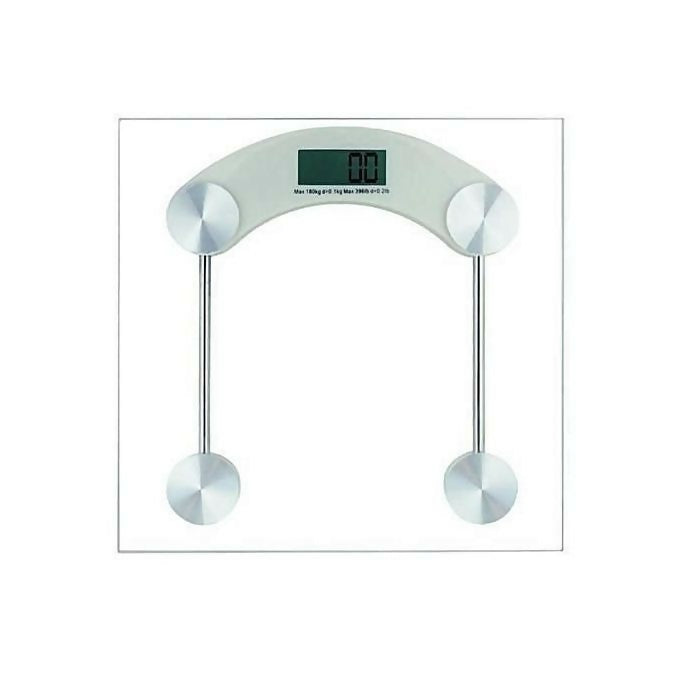Jayvie
Personal Scale
Personal Scale
Couldn't load pickup availability
Types of Personal Scales:
-
Mechanical/Dial Scales:
- These are traditional scales that use a spring mechanism and display weight on a dial.
- Pros: No need for batteries or electricity, durable, and easy to use.
- Cons: Less precise than digital scales, and the dial can be harder to read.
-
Digital Scales:
- These scales use electronic sensors to provide an accurate weight reading, usually displayed on a digital screen.
- Pros: More precise and easier to read than mechanical scales. Some models come with additional features like memory or tracking.
- Cons: Requires batteries, and cheaper models may not be as durable.
-
Smart Scales:
- These advanced scales can connect to smartphones or fitness apps via Bluetooth or Wi-Fi. They often measure additional metrics such as body fat percentage, muscle mass, and BMI (Body Mass Index).
- Pros: Track and store multiple metrics, sync with health apps, useful for those monitoring long-term fitness or health goals.
- Cons: More expensive, requires a smartphone or tablet for full functionality, and may need more setup and maintenance.
-
Body Composition Scales:
- These scales measure body fat, muscle mass, bone density, and sometimes hydration levels in addition to weight. They work by sending a small, harmless electrical current through the body (bioelectrical impedance).
- Pros: Provides a fuller picture of overall health beyond just weight.
- Cons: Can be more expensive, less accurate for certain body types, and not suitable for individuals with pacemakers.
-
BMI Scales:
- These scales calculate your Body Mass Index (BMI) based on weight and height, giving you a better understanding of whether you’re in a healthy range.
- Pros: Quick and easy way to assess weight relative to height.
- Cons: BMI doesn’t account for muscle mass, so it may not be a perfect indicator of health.
-
Portable/Compact Scales:
- Small, lightweight scales designed for easy storage or travel.
- Pros: Great for people on the go or with limited space.
- Cons: May not be as feature-rich as other scales, and accuracy can vary.
Key Features to Consider:
Accuracy: Ensure the scale provides accurate readings. Digital scales generally offer better precision than mechanical ones, but it’s important to check reviews and ratings.
Capacity: Most personal scales can measure up to 300-400 lbs (136-181 kg). If you need a higher weight capacity, there are specialty scales that go beyond these limits.
Measurement Units: Check if the scale allows you to toggle between units (pounds, kilograms, stones) for convenience.
Display: Look for a large, easy-to-read display, especially if you have vision concerns. Backlit displays are ideal for use in dimly lit areas.
Memory/Tracking: Some digital scales can store data for multiple users, making it easy to track progress over time. This feature is useful for families or households where multiple people share a scale.
Step-On Technology: With this feature, the scale turns on automatically when you step on it, providing quick readings without needing to tap a button.
Body Composition Measurements: If you want to track more than just weight, consider a smart or body composition scale that measures fat percentage, muscle mass, water weight, and more.
Design and Material: Scales come in various designs and materials, such as glass, plastic, or stainless steel. Choose one that complements your bathroom or bedroom decor, and consider whether you prefer a lightweight or sturdier model.
Battery Life: If opting for a digital or smart scale, consider the type of batteries it uses and how often they need replacing.
Popular Personal Scale Brands:
- Fitbit: Known for its smart scales that integrate with Fitbit fitness trackers and apps.
- Withings: Offers high-quality smart scales with detailed body composition analysis and app integration.
- Etekcity: A popular budget-friendly brand with reliable digital and smart scales.
- Tanita: Specializes in advanced body composition scales with medical-grade accuracy.
- Renpho: A well-known brand for affordable smart scales that sync with multiple health apps.
Tips for Accurate Readings:
- Place the scale on a hard, flat surface: Carpet or uneven surfaces can affect readings.
- Weigh yourself at the same time each day: Weight can fluctuate throughout the day, so consistency is key.
- Use the scale barefoot: For body composition scales, wearing shoes or socks will interfere with accurate readings.
Share


